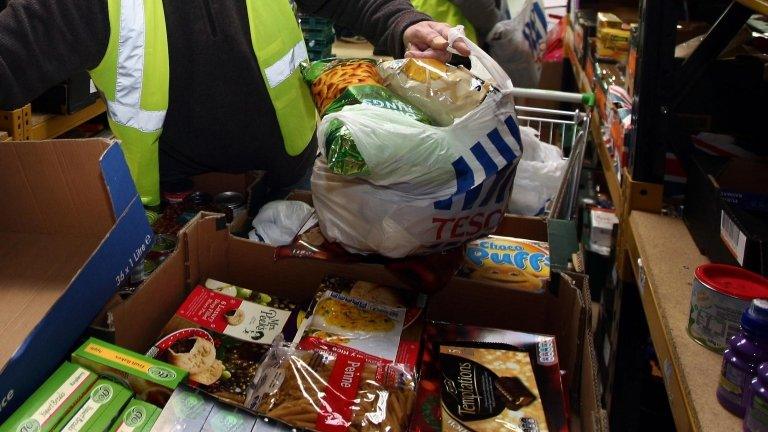Affordable healthy diet 'too expensive for many'
- Published
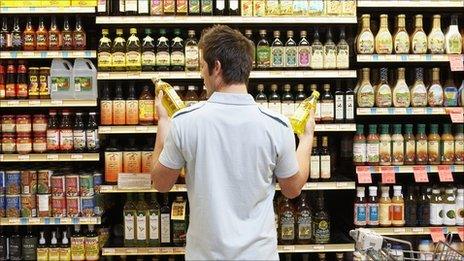
Food prices rose between 2007 and 2012 in the UK
Many people do not have enough income for a "decent diet", public health experts have claimed in an open letter to the prime minister.
The UK Faculty of Public Health said the situation had become so serious that an independent group should be set up by the government to investigate.
The letter pointed to rising food prices, falling wages and a boom in food banks as proof.
But the government said there was evidence problems were getting better.
Data from the Organisation for Economic Co-operation and Development (OECD), released in March, showed the number of people reporting they did not have enough money to buy food was falling and stood at 8.1%.
This was lower than the EU average of 11.5% and the OECD average for developed countries of 13.2%. This is also less than the OECD average for France, Australia, the US and Canada.
But Faculty president Prof John Ashton said other measures suggested the opposite.
"Increasing numbers of people on low wages are not earning enough money to meet their most basic nutritional needs for maintaining a healthy diet.
Professor John Ashton: ''If the current trends go on, we are going to have a malnourished generation''
"We should not accept this in the UK, the world's sixth largest economy and the third largest in Europe.
"An affordable nutritious diet is a prerequisite for health.
"We view the rise of food poverty as indicating the reversal of what was a long process of improvement in food availability and affordability since World War Two."
'Growing problem'
The letter, which was signed by 169 of the faculty's members and is also being published in the Lancet journal, calls on the government to set up an independent working group to monitor nutrition and hunger in the UK.
It comes after the largest food bank provider, the Trussell Trust, said demand for its help had doubled in the last year.
Some 913,000 parcels were handed over in the last 12 months, it said, compared to just under 350,000 in the previous year.
Although some of the rise could be explained by the charity opening more food banks, it was adamant there was a growing problem.
Department for Environment, Food and Rural Affairs (DEFRA) figures show that between 2007 and 2012, the cost of food rose by 12% in real terms.
DEFRA says this has prompted shoppers to cut back by "trading down" to cheaper products.
Purchase of fruit and vegetables dropped by nearly 10% over the period, with higher-than-average falls among the poorest groups.
'Wake-up call'
Ben Reynolds, deputy coordinator of the food charity Sustain, said the warning came as "little surprise", as it underlined what others were telling them.
"Hopefully the government will take note now," he added.
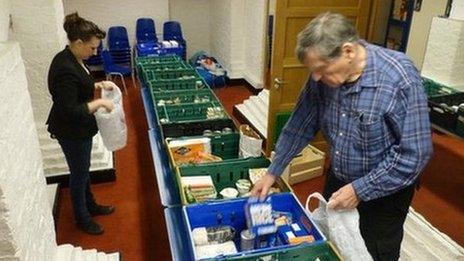
The use of food banks is rising, charities say
Prof Kevin Fenton of Public Health England said he was "very concerned" about the issue.
And shadow public health minister Luciana Berger said the warning "must be a wake-up call for David Cameron".
"They are right to warn that a rise in the cost of living is having a detrimental impact on our nation's health."
A government spokeswoman questioned whether problems were getting worse, pointing to the OECD figures.
But she added: "This country is only just recovering from the worst recession of our time and we know that families were hit hard.
"That is why we cut taxes on jobs, on fuel, on council tax and on childcare, helping the lowest paid the most.
"One of the best ways to alleviate the pressures that hard-working families face is through our relentless drive to grow the economy, cut taxes and get people back into work as part of our long-term economic plan."
- Published16 April 2014
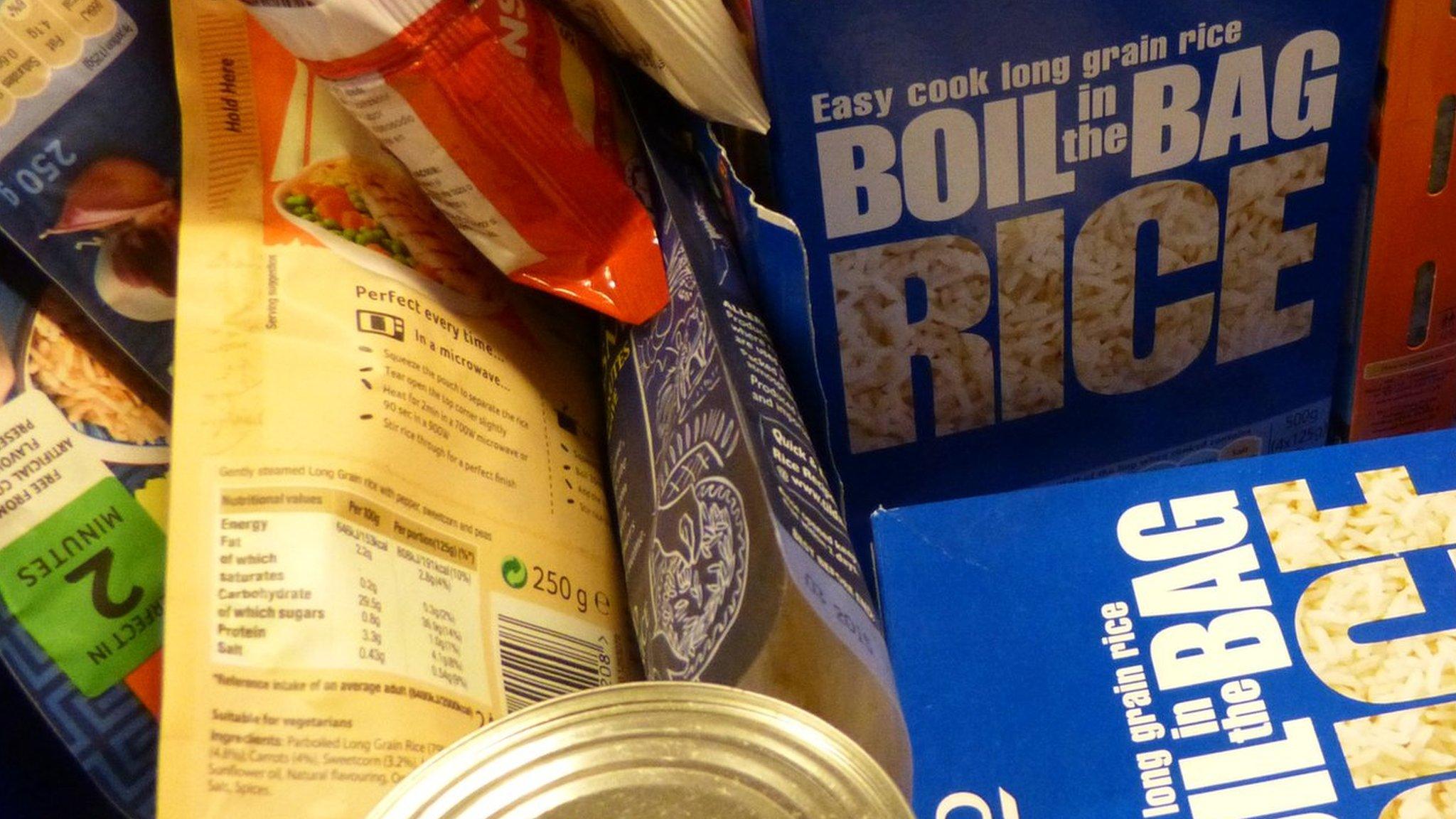
- Published6 April 2014
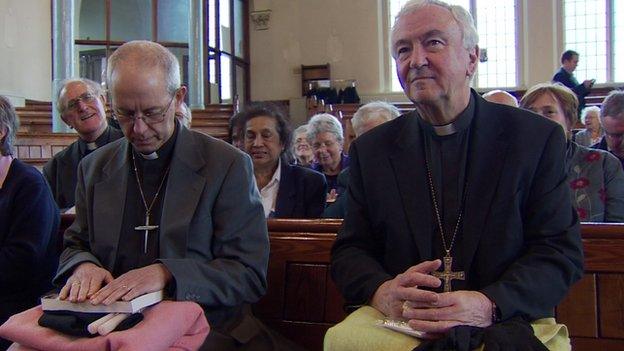
- Published3 March 2014
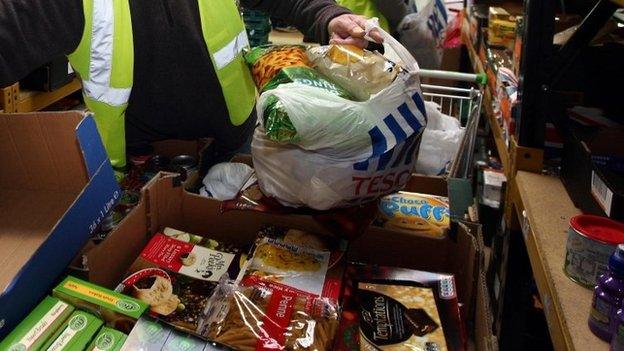
- Published20 February 2014
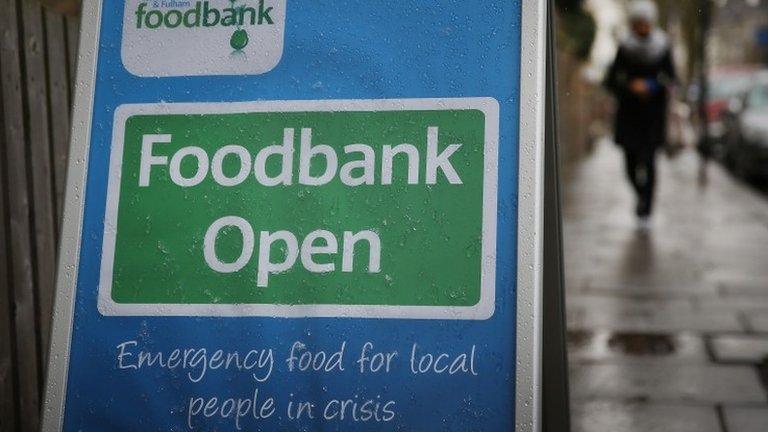
- Published4 December 2013
